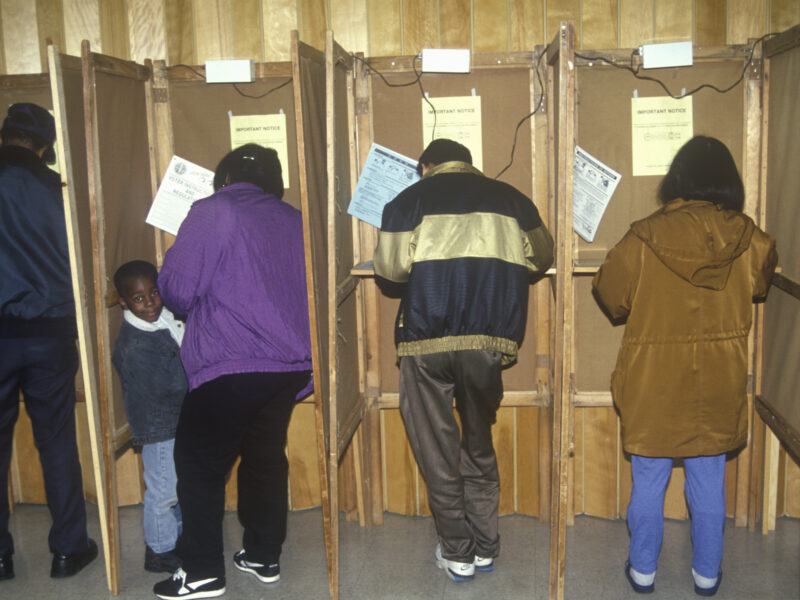Our political system of popular elections rests upon the simple hope that when we go into that voting booth, we will give our greatest consideration to the common good. At the same time, we cannot help but try to further our own best interests or those of our family, our hometown, or our home state. It is also only natural to consider the implications for our respective businesses.
When it comes to the latter, I’m in the character education business. Although I’ve spent my career in the category of schools known as “college preparatory,” I care a lot more about what kind of people my students will turn out to be at 30 than I do about where they go to college. Suffice it to say that I see a lot of stuff going on out there right now in our culture that is bad for business.
Take the most recent Super Bowl, for example. Sports talk shows buzzed with passionate punditry concerning Carolina Panther quarterback Cam Newton’s uncooperative attitude and demeanor during the post-game press conference following his heavily favored team’s decisive loss to the Denver Broncos. Strong opinions were expressed both pro and con. While something tells me that Cam’s going to see a few more Super Bowl appearances in his future, I indeed call him out for his post-game performance because… it’s bad for business.
I can’t shake the worry about how his attitude and demeanor appeared to kids across the world watching at home and how it might inform their future behavior.
Staying with sports, years ago, Charles Barkley, a basketball player with an unparalleled over-achieving work ethic, caused a stir in a Nike commercial when he announced, “I am not a role model…just because I dunk a basketball doesn’t mean I should raise your kids.”
I appreciated that Sir Charles may have been trying to challenge parents to step up their own games a bit. Fair enough. However, his comments were… bad for business.
Prospects for success in my particular business are enhanced significantly when mothers and fathers do the best job they can and pro athletes, music and movie stars give consideration to how they might support these parental efforts as role models. I didn’t always feel this way.
When I began teaching in the mid-70s, I was pretty full of myself, believing that I was capable of counterbalancing any dysfunction that might exist in my students’ homes. I also figured that I could prevent them from being sucked into the various undue influences that might barrage them from the culture at large. By mid-career, I had abandoned this view and had fully embraced a new one: When you put great teaching up against bad parenting, bad parenting will almost always win.
Then, in the early ‘90s, First Lady Hillary Clinton championed the sensible idea that “It takes a village.” As compelling as this idea immediately sounded, I also realized that when you mix great parenting with a bad village, the village might well win out in the end. I still thought Hillary was right, but as Thomas Lickona writes in his book Character Matters, quoting educator Chip Wood, “There is a prior question: What does it take to raise a village?”
For these reasons, suffice it to say that the behavior of our Republican politicians during the campaign for the 2016 presidential election has been nothing short of appalling. To qualify this opinion, I note that I have no horse in this race. Since turning 18, I have spent at least a decade as a member of each of the two major parties and have been an independent for even longer. However, when Donald Trump made the outrageous statement criticizing John McCain’s otherworldly heroic tenure as a prisoner of war during Vietnam – “I like my heroes not to be caught.” – I realized right then and there that I like my politicians to have more civility than I have seen in recent months.
Maybe you have seen this cartoon circulating around the Internet.
That pretty much sums up my feeling about the debates. Again, it’s bad for business.
Contrast this with a story I heard in the ‘80s, I believe on an NPR broadcast interview with writer James Fallows. Two businessmen – one American, one Japanese – were standing at a Tokyo crosswalk, facing a “Do Not Walk” message with no cars coming in any direction. Everyone stood motionless on the corner, waiting patiently for the light to change. The American businessman said to his Japanese counterpart, “This is fascinating and impressive! If we were in New York, no one would wait! Everyone would simply scurry across the street. It is amazing that all of these people just wait.” Thereupon the Japanese businessman replied simply, “A child may be watching.”
Sound hopelessly naïve and idealistic? Maybe, but it’s something to shoot for. And one thing’s for sure: It would be good… actually, make that awesome… for business.
Onward, Malcolm Gauld


